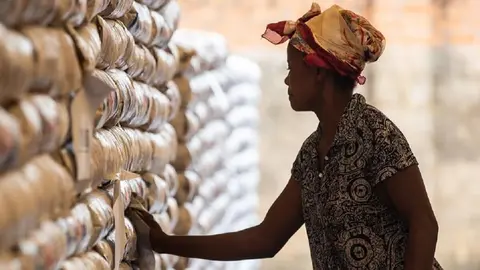Clashes between M23 rebels and the Congolese army aggravate the humanitarian crisis in the country
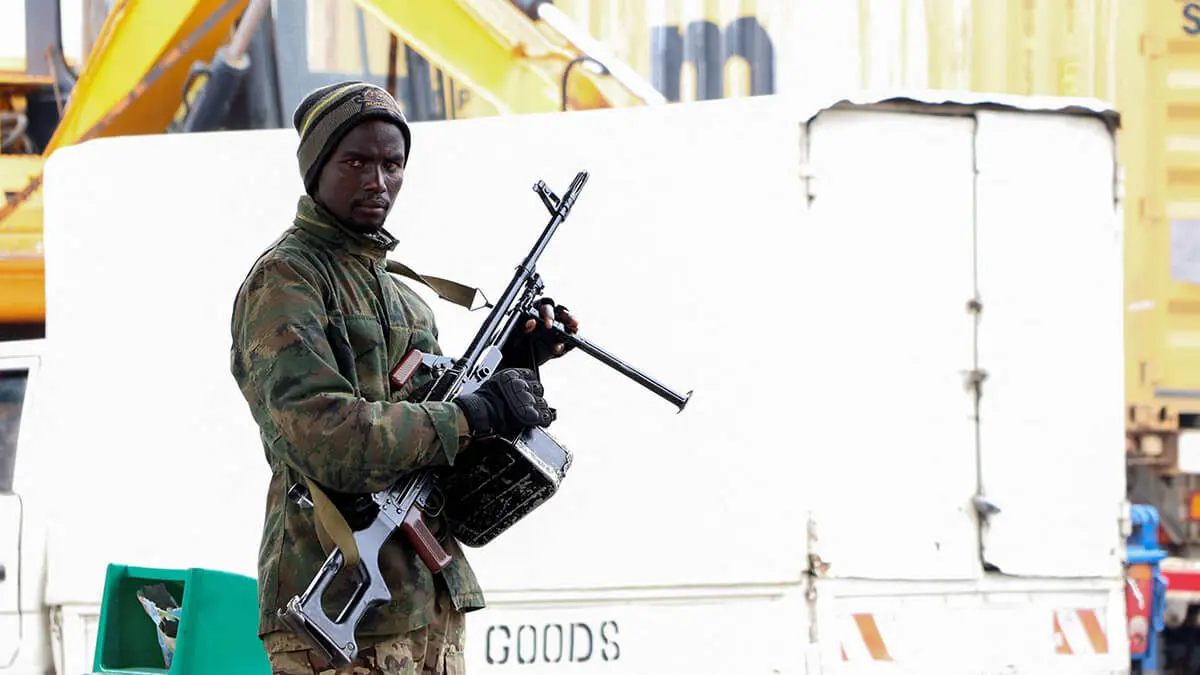
- Attacks on the French and US embassies
- The rebel alliance
- Devastating consequences for the civilian population
- Full support for the DRC
The situation in the Democratic Republic of the Congo (DRC) has worsened following the entry of the M23 (March 23 Movement) rebel militia into the city of Goma, the third largest in the country.
After several days of advance, M23 troops have reportedly secured the capture of Goma International Airport on their social networks and confirmed several attacks on various embassies in the country's capital, Kinshasa.
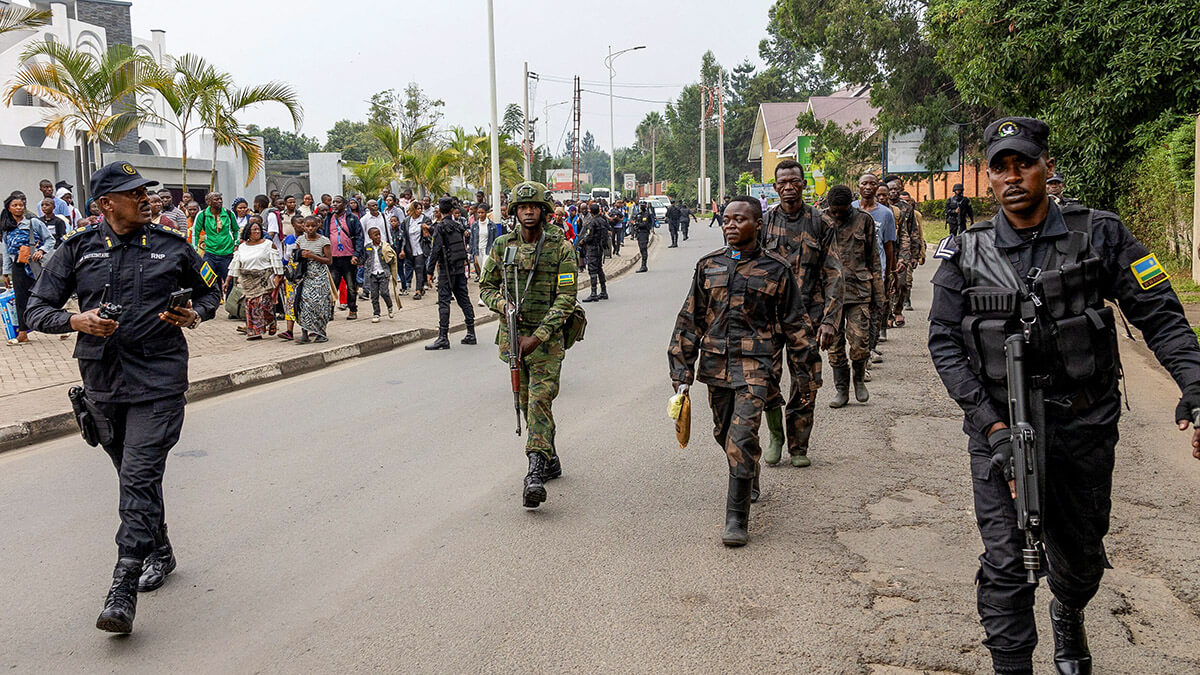
However, the spokesperson for the government and minister of communication of the DRC, Patrick Muyaya, confirmed on social network X that the order and security of the embassies had been re-established. In turn, Muyaya appealed to diplomatic personnel to exercise ‘prudence and moderation’.
Dozens of peacekeeping soldiers have died in the clashes with the rebels. Among them are members of the South African Army who, through a statement from the South African National Defence Force (SANDF), have confirmed the deaths of 13 of their soldiers. In turn, the Uruguayan Foreign Minister, Omar Paganini, announced that two of his soldiers were wounded.
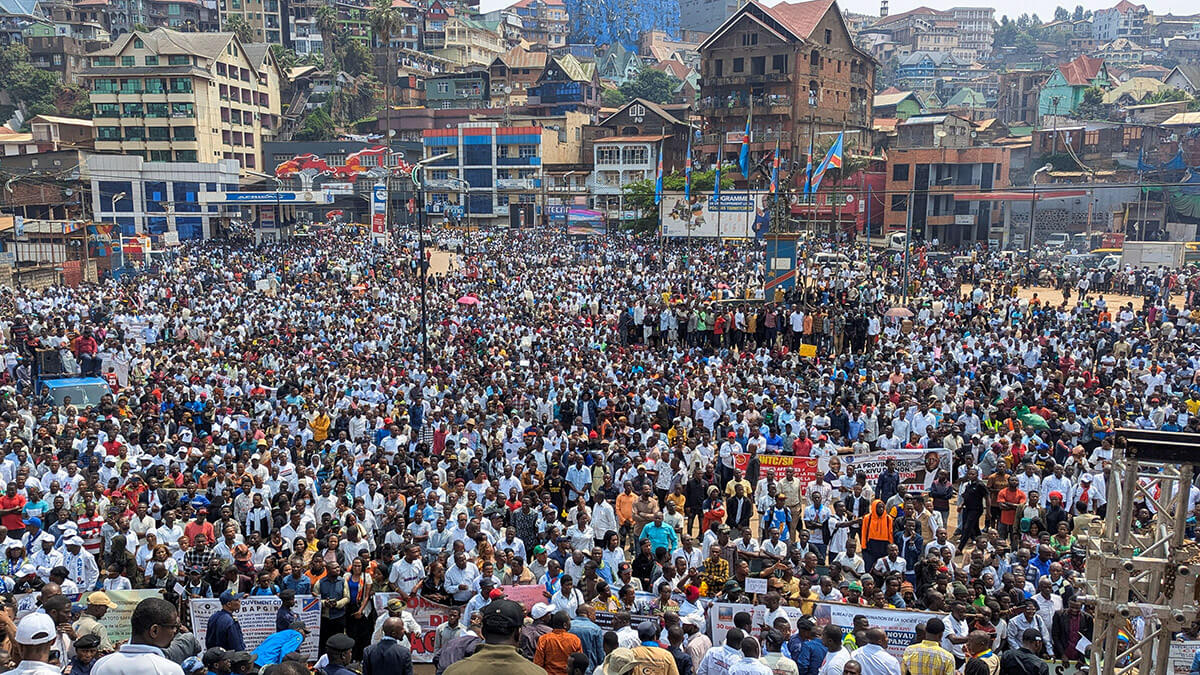
Attacks on the French and US embassies
In the Congolese capital, Kinshasa, tension is growing: hundreds of demonstrators have attacked and set fire to the French and US embassies. The assailants accuse the French and US governments of supporting Rwanda, which is financing the M23 rebel group and invading their territory to plunder its mineral resources. The embassies of African countries such as Rwanda and Uganda have also been ransacked.
The first measure adopted by the US Embassy was to suspend its activity and call on its citizens to leave the country as soon as possible. Other countries such as Germany have suspended their development aid to Rwanda. So far in the invasion, in the city of Goma alone there have been more than 100 deaths and more than 1,000 injuries.
Imágenes brutales que nos llegan desde Kinshasa, la capital de RD Congo.
— Néstor Siurana (@nestorsiurana) January 29, 2025
Manifestantes atacan e incendian las Embajadas de Francia y Estados Unidos. Las han prendido fuego.
Culpan a París y a Washington de apoyar a Ruanda, financiador del grupo rebelde M23 e invasor de su… pic.twitter.com/91ilhfVN6l
After the fall of Goma to the Rwandan forces and the armed group M23, demonstrators began to burn Rwandan flags and portraits of Paul Kagame, the country's president, who is of Tutsi ethnicity and has the support of various Western countries.
The objective of the attacks on the interests of the Democratic Republic of the Congo is to gain control of the country's important natural resources, as well as its national security. Rwanda has been accused on multiple occasions of having an interest in the mineral resources of the eastern DRC, such as coltan, cobalt and gold.
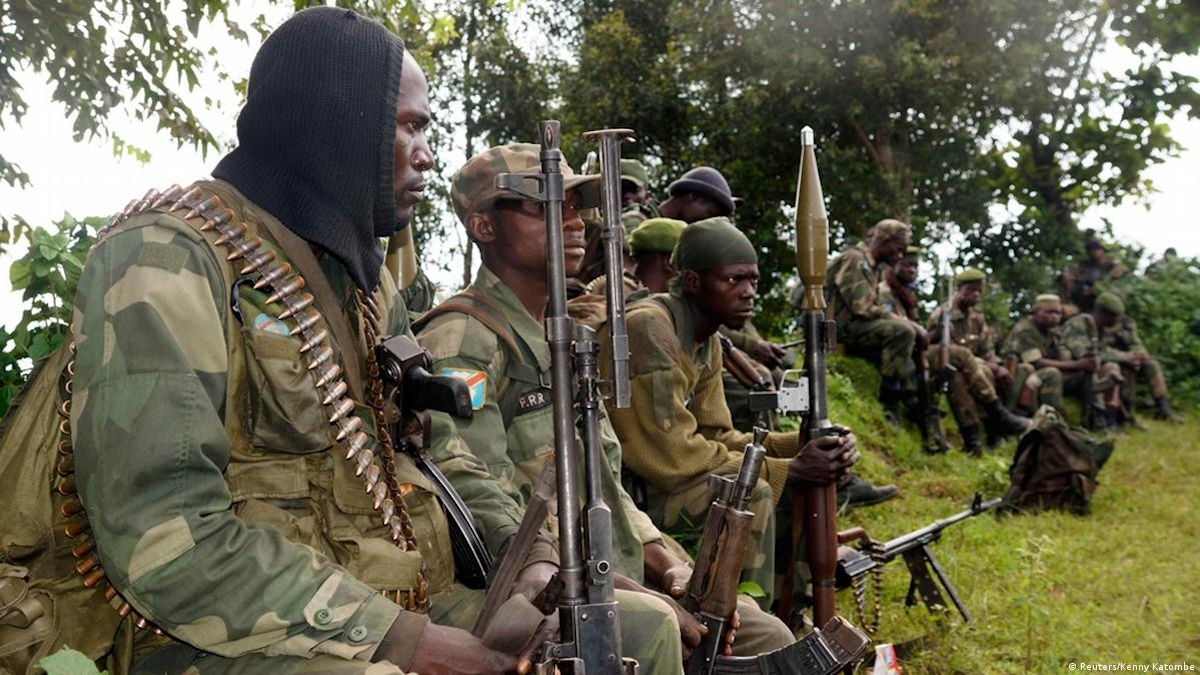
These minerals are vital for the global economy and could be a great source of economic resources for Rwanda, a country with few natural resources due to its small size. By intervening in the territory of the Democratic Republic of the Congo, Rwanda is also seeking to expand its influence and leadership in the Great Lakes region.
The rebel alliance
M23 and ADF are two of the rebel groups in the east of the Democratic Republic of the Congo and their areas of influence. Both are concentrated around the country's mining basins, from which coltan, gold, diamonds and cobalt, among other valuable minerals, are extracted.
The rebel group M23 began to extend its area of influence with the help of Rwanda, a country with which it shares a border. This facilitates the supply of supplies to the combatants.
Estos son los grupos rebeldes del este de la RD Congo y sus áreas de influencia.
— Néstor Siurana (@nestorsiurana) January 28, 2025
La mayoría de ellos se concentran alrededor de las cuencas mineras del país que tienen coltán, oro, diamantes y cobalto, entre otros.
El grupo rebelde M23 empieza a extender su área de influencia… pic.twitter.com/UTKWGBDeex
Composed mainly of ethnic Tutsis, the M23 group has the support of the Rwandan government. Although its stated objective is to protect the rights of Tutsis in the Democratic Republic of the Congo, it is clear to everyone that its main aim is to secure control of the areas rich in mineral resources.
For its part, the ADF is a Ugandan rebel group linked to the Islamic State in 2019, responsible for attacks, kidnappings and murders of civilians.
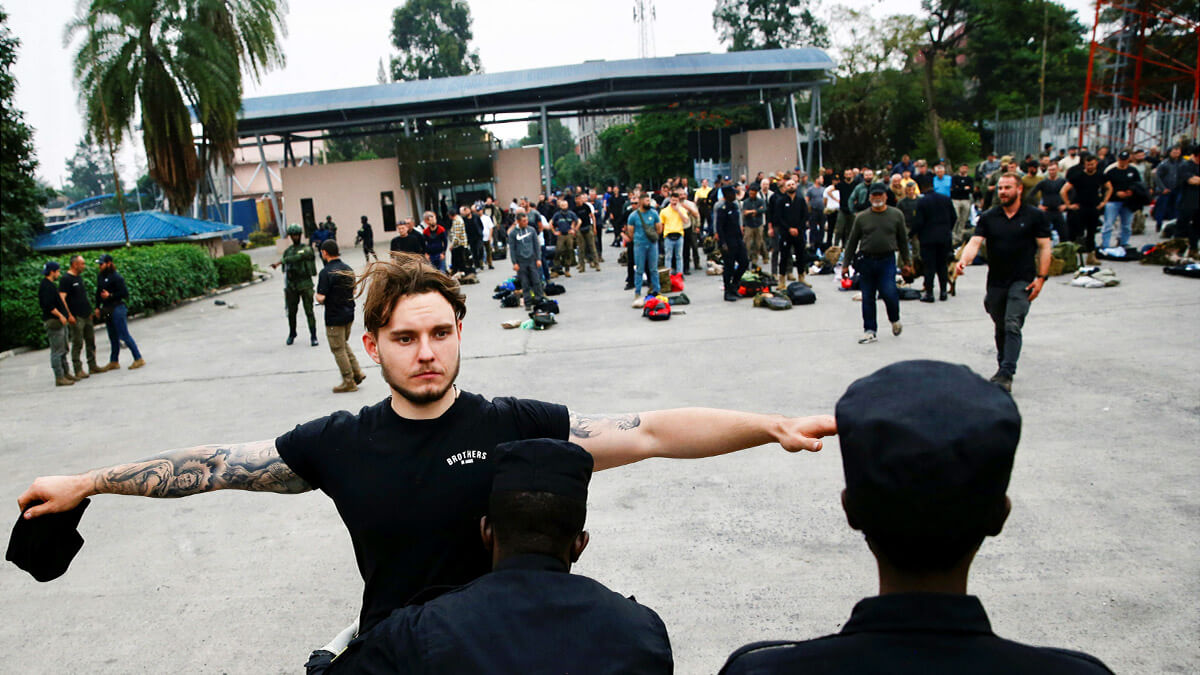
Devastating consequences for the civilian population
The drama is complete in some regions. According to UN reports, several settlements of between 300,000 and 400,000 people each were emptied in a matter of time due to the rapid advance of M23 rebel troops.
A situation ratified by Tigere Chagutah, Amnesty International's regional director for East and Southern Africa: ‘Thousands of Congolese civilians are having to flee again to save their lives, desperate for safety and humanitarian aid’.
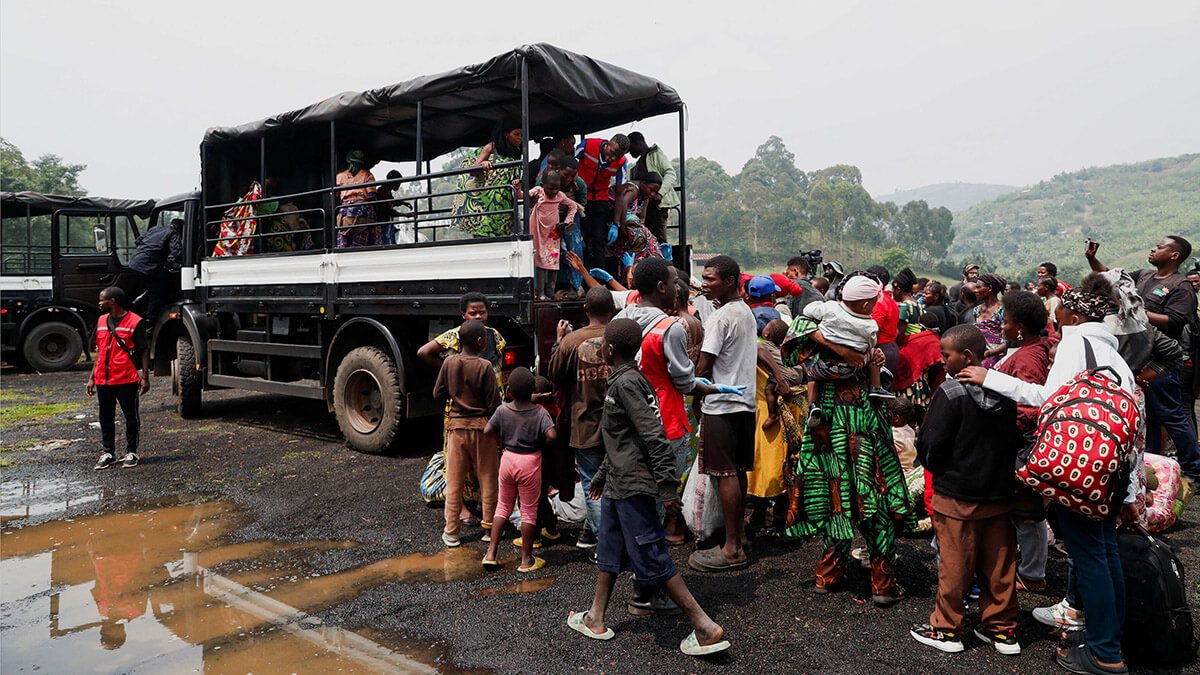
Médecins Sans Frontières has confirmed that the tragedy has been aggravated by the displacement of hundreds of thousands of people from the rest of the country to the settlements of Goma. ‘The M23, backed by Rwanda, must respect international humanitarian law and guarantee the safety of the population, and the safe passage of the civilian population fleeing the conflict,’ Chagutah said.
In the hospitals the situation is at breaking point, as they are overwhelmed by the high number of wounded. Some reports confirmed that medical personnel have also been attacked, leaving many of the patients trapped in the crossfire. Jens Laerke, spokesman for the United Nations humanitarian office, said the dead are piling up in the streets.
The influx of patients to hospitals is so high that car parks have become ‘makeshift waiting and triage rooms’, according to Patrick Youssef, regional director for Africa of the International Committee of the Red Cross.
Estallan protestas en las calles de Kinshasa, capital de la RD Congo.
— Néstor Siurana (@nestorsiurana) January 27, 2025
Tras la caída de Goma ante las fuerzas ruandesas y el grupo armado M23, los manifestantes están quemando banderas de Ruanda y fotos de Paul Kagame, presidente del país.
Kagame, de etnia tutsi, cuenta con el… pic.twitter.com/c3eJntl7wZ
Full support for the DRC
Faced with the increase in violence, the new US Secretary of State, Marco Rubio, has expressed his condemnation of the M23 offensive and reaffirmed the support of the US Administration, after contacting the country's president, Félix Tshisekedi, by telephone.
For their part, on 27 January the European Union's Foreign Ministers urged Rwanda to cease its actions in support of the M23 rebels.


